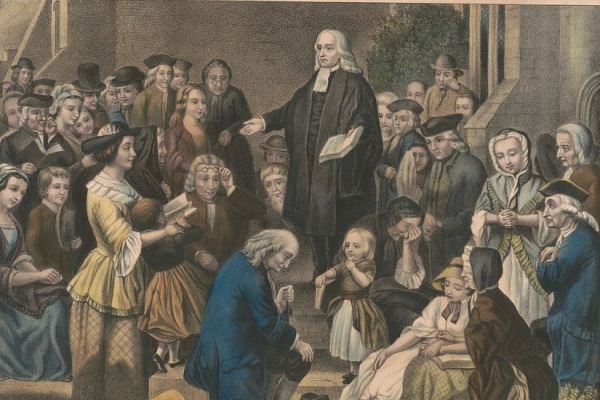Outrage culture: How did Jesus model righteous rage?

Outrage. It’s everywhere, from everyone, every side—and it’s inescapable.
The extremism of our polarization has pushed us further into thought camps. People are only seeing and hearing from people who think exactly like them. Those who disagree get slammed—resulting in mile-long comment sections or even “unfollowing.”
Our “outrage culture” manifests in the vicious nature of people’s reactions to absolutely everything it seems. We see it in responses to current events, pop culture and even everyday people.
Christians are hardly innocent in the participation of outrage culture. It doesn’t take long to find aggressive commentary from people who share the same faith attacking an issue and even the people behind them.
Some may call it passion, but there’s an underlying, familiar sentiment—hate.
The question is, how do we as Christians engage in controversial dialogue today? If we are to be in the world, but not of it—where do we draw the line between rage and hate?
What does righteous rage look like? How do we express passion without compromising love?
If we take a look at the Bible, we find the original, passionate political whistleblower—Jesus.
Jesus as many of us know was a highly controversial figure. His teachings were so offensive the government and people conspired to kill Him for it.
One of the greatest examples of righteous rage displayed is Jesus entering the temple in Matthew 21:12-13.
“Jesus entered the temple courts and drove out all who were buying and selling there. He overturned the tables of the money changers and the benches of those selling doves. ‘It is written,’ He said to them, ‘My house will be called a house of prayer,’ but you are making it ‘a den of robbers.’”
In Jesus’ day, the temple—designated as a place of worship—was being corrupted and used for the personal profit of the greedy few. Devastated, Jesus made a whip out of cords and drove all from the temple courts. He famously “flipped the tables.”
He was unapologetic, decisive and strong-willed. There’s nothing mild-mannered about His response. What this is: a template for Jesus’ purposeful protest. What this isn’t: an excuse for Christians to pick fights in the online comment boxes.
If we’re to glean a healthy application of how to engage in our world it’s critical to observe these two factors about Jesus in this event:
1. Jesus was not a frustrated antagonizer, He was an unapologetic peacemaker.
It’s important that we observe the source of His rage. Jesus is outraged by the manipulation of the Jewish citizens. He was fighting to protect people without power in the church, the marginalized. Some may tense at the word “marginalized” with concern and think it’s another excuse for people to “cry victim.” But the reality is society hasn’t changed today—there are those with power and those without, simple as that. In this case, it was the Jewish congregants being used for profit in a place of worship. Jesus’ reasoning was a noble cause many can get behind. Flip the pages of the Bible, and the marginalized is a wealthy tax collector hated by society. Next, it’s a woman caught in the act of adultery—the absolute lowest notch on society’s totem pole whom Jesus dignified by equating her sin to the religious elite.
The purpose of His rage was always people, always love. Jesus did not make noise to be heard. He exhibited passion for a purpose and that was always for people. Ask yourself, who exactly are you fighting for?
2. Jesus is the ultimate duality of truth and love.
A sentiment I’ve heard people often share is Jesus wasn’t nice. “Jesus wasn’t a nice guy, He was offensive so we shouldn’t be afraid to be.” In a sense this is true. Jesus wasn’t “palatable” to society. He was never passive and always unafraid to break apart societal norms to speak the truth. As Christians, the world will absolutely come to hate you as they did Jesus, if you live like Him… The Bible promises us this. God warns us of this time and time again throughout scripture—to live in the service of pleasing people will lead toward self-destruction.
However, it doesn’t mean we are encouraged to be hateful, abrasive and aggressive for the sake of truth—no matter the cost. There is a crucial balance which Jesus modeled perfectly. He constantly lived in perfect duality. That is what made Him the most exceptional human being that ever lived. He was described as both meek and bold. He was both tough and tender. Jesus never traded truth for love. As noted in James 2:11 “Mercy triumphs over judgment.”
Jesus always walked in the spirit of truth and applied pressure when and where needed. Never losing sight of the purpose of being love.
If we aren’t anchored to the sole understanding that every one of us is loved and a child of God—our outrage isn’t righteous, it’s hateful. Truth and love are not mutually exclusive—Jesus is living proof of that.
A powerful quote from Professor, Author and proclaimed expert on “empathy” Brene Brown touches on the heart of this sentiment:
“Dehumanizing and holding people accountable are mutually exclusive. Humiliation and dehumanizing are not accountability or social justice tools, they’re emotional off-loading at best, emotional self-indulgence at worst. And if our faith asks us to find the face of God in everyone we meet, that should include the politicians, media and strangers on Twitter with whom we most violently disagree. When we desecrate their divinity, we desecrate our own, and we betray our faith.” ― Brené Brown, Braving the Wilderness
One of the greatest models of the dichotomy of truth and love is Martin Luther King Jr. His fierce boldness and unapologetic demand for civil rights for African Americans were rooted in one thing—love.
“Returning hate for hate multiplies hate, adding deeper darkness to a night already devoid of stars. Darkness cannot drive out darkness; only light can do that. Hate cannot drive out hate, only love can do that.”― Martin Luther King Jr., Strength to Love
Hopefully, we can move in the spirit of truthful justice with our hearts set on love. Hopefully, our outrage won’t simply add fuel to the flame and our passion will always beget compassion.
LightWorkers’ mission is to create engaging, uplifting and inspirational content that breaks through the clutter, building a community of sharing and igniting a movement in the real world that motivates people to celebrate and share the good all around them.





















